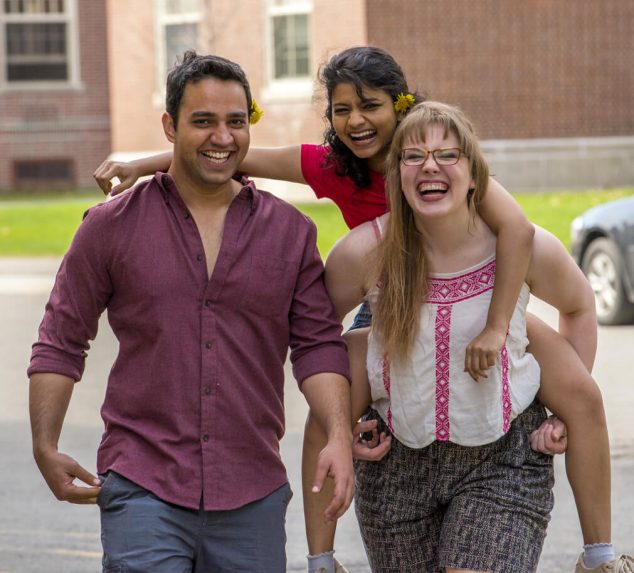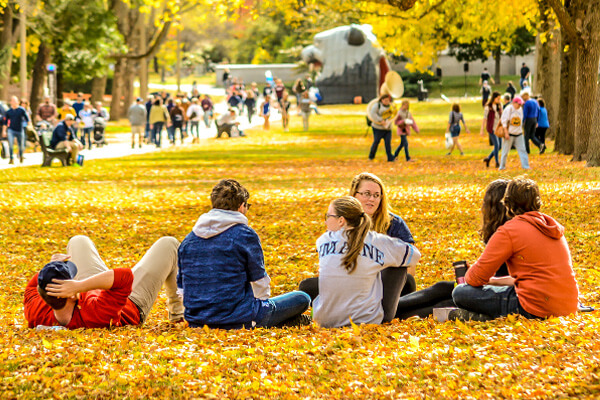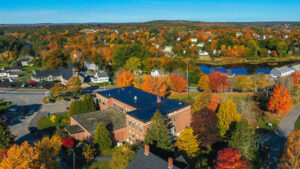
Founded in 1865, the University of Maine is a land, sea and space grant institution, and the flagship campus of the University of Maine System. Located in Orono along the banks of the Stillwater River, this vibrant and dynamic university serves Maine, the nation, and the world through its teaching, research and outreach mission. UMaine students come from every county in Maine, more than 49 other states and 81 countries. UMaine offers more than 100 degree programs through which students can earn graduate certificates, master’s, doctoral or professional science master’s degrees. Opportunity for all members of the University of Maine community and its constituents is a cornerstone of our mission.
The University of Maine offers a strong traditional education at an affordable price. UMaine is one of New England’s premier universities. We help students create success stories — with a wide variety of programs and opportunities — and we do so with world-class faculty members, internationally recognized research, first-rate facilities, and a friendly, safe atmosphere located near some of the best year-round recreation sites in the nation.
The University of Maine and its regional campus, the University of Maine at Machias, are accredited by the New England Commission of Higher Education (NECHE) as part of the Commission’s accreditation of the University of Maine System.
We want you to visit our campuses, explore our website and discover UMaine’s unique opportunities.

Mission

Learn about UMaine’s mission of teaching, research and scholarship, and community engagement as the state’s land, sea and space grant university.
Admissions

UMaine’s scholarships and financial aid packages reaffirm our commitment to make higher education affordable for Maine students, and to bring the best and the brightest students to the state.
Campus
 UMaine is located on Marsh Island between the Stillwater and Penobscot rivers in Orono, and is approximately 5 miles from Bangor. Maine is home to some of the country’s most spectacular destinations, including Acadia National Park, Bar Harbor and Mount Katahdin.
UMaine is located on Marsh Island between the Stillwater and Penobscot rivers in Orono, and is approximately 5 miles from Bangor. Maine is home to some of the country’s most spectacular destinations, including Acadia National Park, Bar Harbor and Mount Katahdin.
The University of Maine at Machias
 The University of Maine at Machias, the regional campus of the University of Maine, awards baccalaureate and associate degrees, and certificates. It is accredited by the New England Commission of Higher Education as part of the University of Maine. Established in 1909, UMaine Machias is the easternmost university campus in the United States. The area’s bountiful natural resources, and rich environmental, recreational, cultural and educational traditions inform the campus.
The University of Maine at Machias, the regional campus of the University of Maine, awards baccalaureate and associate degrees, and certificates. It is accredited by the New England Commission of Higher Education as part of the University of Maine. Established in 1909, UMaine Machias is the easternmost university campus in the United States. The area’s bountiful natural resources, and rich environmental, recreational, cultural and educational traditions inform the campus.
Through its distinctive baccalaureate programs and student-centered community, UMaine Machias creates enriching educational opportunities that prepare graduates for professional success and lifelong engagement with the world. UMaine Machias embodies an active community of diverse learners who share a commitment to exploration, leadership, collaboration and interdisciplinary problem solving. Inspired by its unique coastal location, UMaine Machias’ creative energy, applied research and community engagement enhance the social, cultural, economic and natural environments of the state of Maine.
UMaine Machias is Maine’s coastal university, where the land and sea, communities and natural ecosystems provide the context for a unique learning and living experience. UMaine Machias’ distinctive, high-quality education centers on engaging students in the scientific, cultural, economic and social inquiry. Students are engaged in intellectually rigorous and innovative campus and community experiences, including academically integrated campus service, community engagement, social diversity, mentored research and professional internships.
